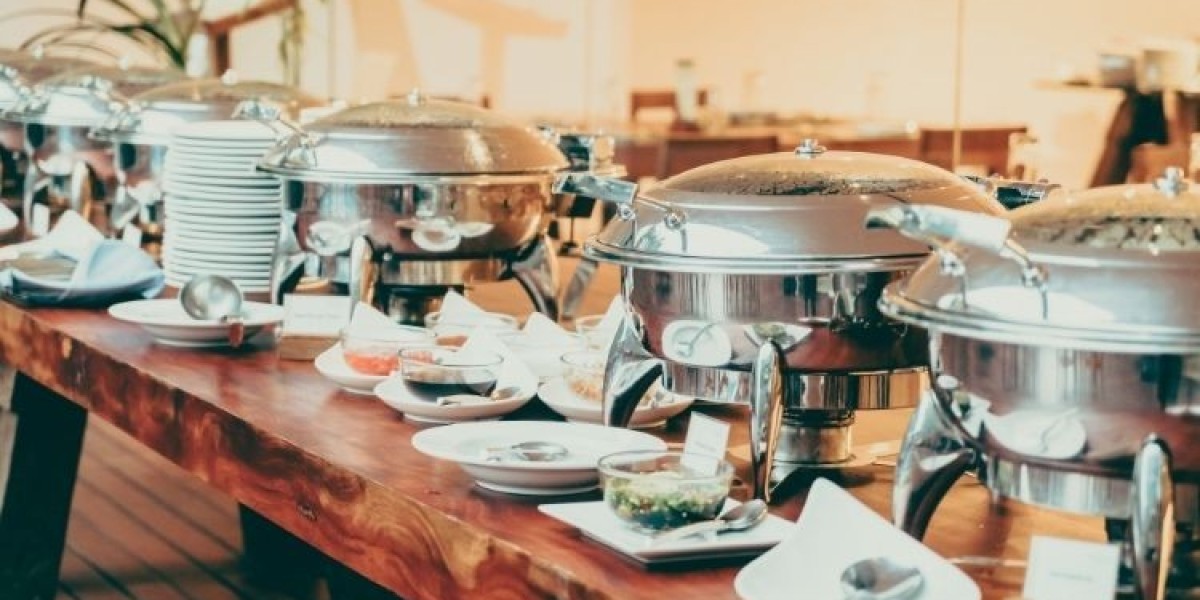Catering is not just about preparing and delivering meals—it’s about curating experiences. Whether it’s a corporate gathering, a lavish wedding, or an intimate backyard celebration, catering adds soul to the event. It merges hospitality with artistry, flavor with presentation, and service with satisfaction. When done right, catering becomes invisible in its effort but unforgettable in its impact.
What sets catering apart from regular dining is its personalization. It adapts to the theme, the mood, the guests, and even the season. From plated dinners to live food stations, grazing tables to molecular gastronomy displays, catering isn’t limited to food—it extends into ambiance, décor, and hospitality that elevate the entire guest experience.
Expert Market Research Insight: Catering in the Modern Era
According to Expert Market Research, United States Catering services are increasingly being shaped by changing lifestyles, urbanization, and the rise of experiential dining. People no longer see catering as just a necessity for feeding guests, but as a creative extension of the event itself. Caterers are now expected to provide not just food, but a full-sensory experience—complete with presentation, storytelling, and service finesse.
Expert Market Research also highlights the role of innovation in expanding the United States Catering landscape. With the use of sustainable practices, tech-integrated service models, and culinary personalization, the industry is becoming more agile and client-centric. From micro-events to mega galas, catering is evolving into an art form—where client expectations are met with creativity, efficiency, and a deep understanding of food culture.
The Evolution of Catering: From Tradition to Trendsetting
The catering industry has come a long way from basic banquet meals and buffet lines. Today, it's a reflection of global culinary diversity, dietary consciousness, and lifestyle preferences. Vegan feasts, gluten-free stations, interactive chef counters, and even zero-waste catering are now common features at events. This evolution reflects a shift in consumer values toward health, sustainability, and creativity.
Technology has also played a significant role. Digital menus, contactless services, and AI-powered event planning tools now help caterers streamline operations and provide seamless client experiences. Social media, too, has transformed the catering world—every plate served has the potential to go viral if it’s Instagram-worthy.
Regional Flavors and Global Fusion
Catering isn't a one-size-fits-all service. Its charm lies in the way it reflects regional tastes while accommodating diverse cultural preferences. In Asia, catering may include bento boxes, sushi platters, or elaborate tandoori buffets. In Europe, rustic Mediterranean spreads and elegant wine-paired dinners are popular. Middle Eastern catering often showcases rich mezze assortments, slow-cooked meats, and traditional desserts like baklava.
Fusion catering—combining global influences into a single menu—has become a sensation in recent years. Think Thai tacos, Indian sliders, or kimchi-topped pizzas. These creative fusions are crowd-pleasers, offering something novel and nostalgic all at once.
Spotlight on the United States Catering Scene
In the United States, catering has become an essential part of both professional and personal events. From Silicon Valley tech launches to Southern backyard weddings, U.S. catering embraces a broad range of styles, cuisines, and service models. American caterers are known for their adaptability—offering everything from high-end luxury spreads to food truck-style street eats.
The focus on customization is particularly strong in the U.S., where clients expect caterers to consider not only flavor but also dietary preferences, ethical sourcing, and sustainability. It's not unusual for caterers to create entirely vegan menus, serve locally sourced organic produce, or accommodate detailed allergy-friendly options. In cities like New York and Los Angeles, themed catering has become a staple—offering immersive culinary experiences that match the tone and style of the event.
Beyond the Menu: The Personal Touch
What truly distinguishes exceptional catering from the average is the attention to detail. Great caterers don’t just deliver food—they listen, collaborate, and adapt. They understand the emotional weight of a wedding, the precision needed in corporate settings, and the fun vibe required for birthday bashes or festivals.
This personal touch is what creates lasting impressions. When a caterer remembers a guest’s dietary preference or accommodates a last-minute change with grace, it speaks volumes. It’s these small gestures that leave big impacts, ensuring repeat clients and glowing referrals.
Moreover, catering has become an inclusive platform for cultural storytelling. From traditional feasts to themed menus that celebrate heritage, caterers are often given the honor of representing cultures, customs, and family traditions through food. That’s what makes catering such a heartfelt profession—it’s deeply human, endlessly creative, and profoundly impactful.
The Future of Catering: Innovation Served Fresh
As lifestyles continue to shift toward wellness, sustainability, and authenticity, catering will keep adapting. Expect to see more plant-based menus, hyper-local ingredient sourcing, and AI-powered planning tools. Even post-event food management—like composting or donating leftovers—is becoming a major part of responsible catering practices.
Interactive experiences such as live cooking stations, DIY food bars, and virtual catering for hybrid events are also gaining momentum. It’s clear that the future of catering is not just about serving—it’s about engaging, delighting, and creating moments that matter.






